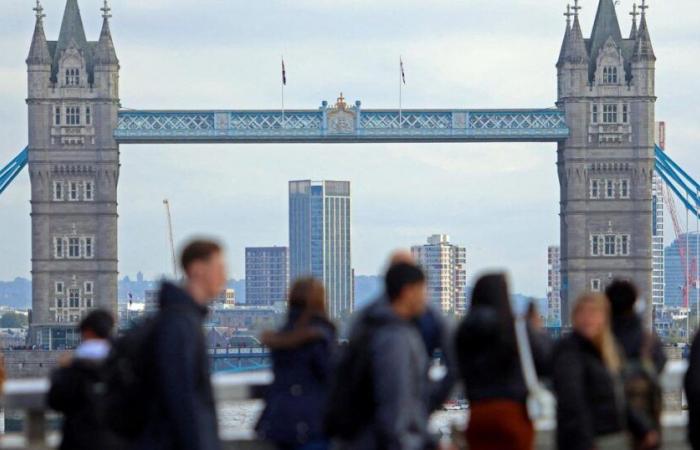
The pound sank on Thursday, weighed down by concerns both about the capacity of the British government to control the public debt and about the country’s economy, and by Donald Trump’s threats to increase customs duties. Around 10:40 a.m. GMT (11:40 a.m. in Paris), the pound fell 0.81% against the greenback, to $1.2263, after falling earlier to its lowest level since November 2023, at $1.2239. The pound lost 0.65% against the European currency, to 84.01 pence per euro.
“Pound weakness reflects greater investor unease” facing the situation “on the “gilt” market”British Treasury bonds, underlines Lee Hardman, analyst at MUFG. On Thursday, the borrowing rate on 30-year British bonds recorded its highest since July 1998, while yields on 10-year British government bonds were at their highest since July 2008. Typically, the rise in Bond yields tend to support a currency, attracting investors. This is not the case here, as the UK’s rising borrowing costs “suggests a lack of confidence in ability” of the Labor government “to fuel economic growth” and control the country’s debt, summarizes Kathleen Brooks of XTB.
Also read
British debt in turn crosses the threshold of 100% of GDP
A stronger dollar
Labor has struggled to convince the British business world since returning to power in July 2024. This situation “arouses comparisons” with the collapse of the pound and soaring government borrowing rates following former Prime Minister Liz Truss’ massive, unfunded spending announcements in September 2022, notes MUFG’s Lee Hardman . The British currency also falls “facing a stronger dollar”estimates Ipek Ozkardeskaya, analyst at Swissquote Bank, in the face of “fears that Donald Trump’s presidency will spur inflation in the United States”and delays the easing of interest rates by the Federal Reserve (Fed).
On Wednesday, CNN claimed that the president-elect, whose inauguration is scheduled for January 20, would consider a declaration of national economic emergency giving him the legal framework necessary to quickly implement tariffs on products entering the United States. United. In a report from their last meeting on December 17 and 18, published on Wednesday, several officials of the American central bank were also concerned about seeing prices calm down less quickly than expected, removing the prospect of a further decline. rate in January.





